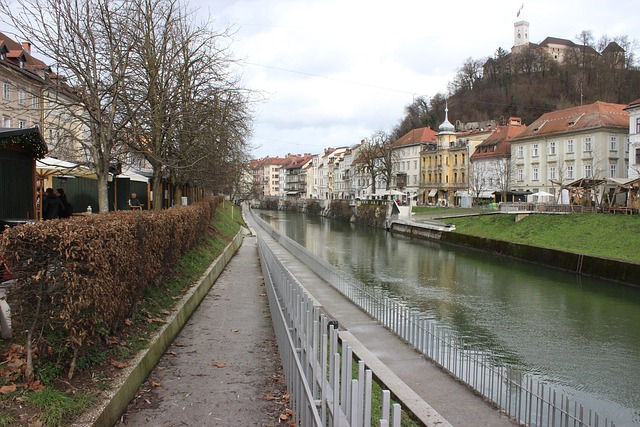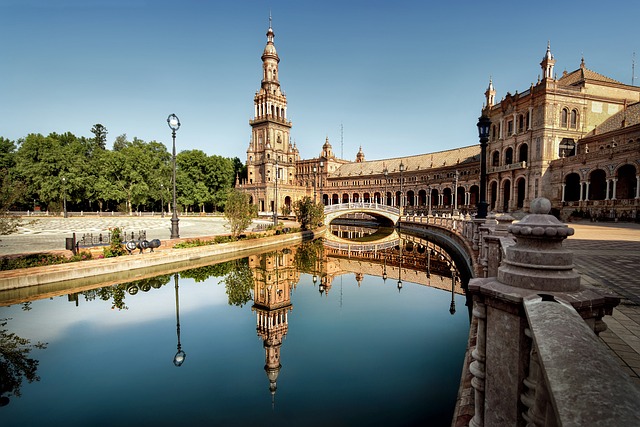Karachi's Cantt area faces complex security challenges, including rising crime, ethnic tensions, and terrorism threats, mirroring the city's broader issues. However, recent improvements driven by local law enforcement and community involvement have significantly enhanced safety in Cantt. This transformation showcases a holistic approach to security, combining advanced technology, infrastructure development, and community engagement, making Karachi a safer economic hub.
“Exploring the security landscape of Karachi’s Cantt area is crucial for understanding the dynamic challenges facing one of Pakistan’s vibrant metropolitan centers. This article delves into the historical perspective of security measures in Cantt, examining their evolution and current state. We highlight key issues, threat actors, and strategic efforts from the community, government, and private sector to enhance security in this bustling part of Karachi.”
- Understanding the Security Landscape in Karachi's Cantt Area
- Historical Perspective: Challenges and Evolution of Security Measures
- Current State: Key Issues and Threat Actors in Cantt
- Strategies for Enhancing Security: Community, Government, and Private Sector Efforts
Understanding the Security Landscape in Karachi's Cantt Area

The security situation in Karachi’s Cantt area is a complex tapestry woven with both challenges and strides towards stability. As one of Pakistan’s metropolitan hubs, Karachi faces unique pressures, including rising criminal activities, ethnic tensions, and terrorism threats. Cantt, known for its bustling commercial centers and diverse population, has historically been a microcosm of these issues.
However, recent initiatives by local law enforcement and community efforts have significantly enhanced security. Advanced surveillance systems, robust policing strategies, and increased community involvement have contributed to making Cantt a safer place. In terms of specific improvements, the area has seen a decrease in targeted assassinations and armed robberies, reflecting a positive shift in the overall security landscape of this vibrant Karachi neighborhood.
Historical Perspective: Challenges and Evolution of Security Measures

The security situation in Karachi, Pakistan’s economic powerhouse and a bustling metropolis, has evolved significantly over time, shaped by historical events and societal changes. Historically, Karachi, being one of the largest cities in South Asia, has faced various security challenges due to its strategic location and diverse population. From early political unrest and ethnic tensions to more recent gang-related crimes and terrorism, the city’s security landscape has been dynamic and complex.
Over the years, the security measures taken by the authorities have also evolved. The response to these challenges has ranged from traditional police patrols and community engagement programs to the implementation of advanced surveillance technology and intelligence-led operations. Karachi’s journey towards enhanced security is a testament to its resilience and the continuous efforts to create a safer environment for its residents, navigating through a labyrinthine web of issues that have impacted the city’s overall peace and stability, particularly in comparison to other urban centers across Pakistan.
Current State: Key Issues and Threat Actors in Cantt

The current security situation in Cantt, Karachi, is complex and multifaceted. Key issues include rising crime rates, targeted attacks by organized criminal networks, and sporadic violent incidents linked to political and sectarian tensions. These challenges are exacerbated by a lack of effective community policing and inadequate infrastructure for surveillance and response.
Threat actors in Cantt predominantly consist of armed gangs involved in drug trafficking, extortion, and contract killings. Political militiamen and extremist groups also pose a significant threat, leveraging their influence to fuel communal violence. The interconnected nature of these threats demands a comprehensive approach that involves enhanced cooperation between law enforcement agencies, community leaders, and residents to mitigate risks and ensure the safety of the neighborhood.
Strategies for Enhancing Security: Community, Government, and Private Sector Efforts

In Karachi, enhancing security involves a multifaceted approach where collective efforts from the community, government, and private sector are essential. Community initiatives play a crucial role in fostering a sense of vigilance and collaboration. Residents can actively participate by forming neighborhood watch groups, organizing regular security meetings, and promoting open communication channels to quickly share information about suspicious activities. This local involvement helps build a robust early warning system, ensuring swift response times.
The government’s role is critical in providing the necessary infrastructure and resources. Implementing advanced surveillance systems, improving street lighting, and establishing dedicated security checkpoints can significantly deter criminal activity. Additionally, investing in training programs for police forces and fostering better community-police relations enhances overall security. The private sector also contributes by adopting safety measures within their facilities, such as installing CCTV cameras and implementing access control systems, which can be extended to public spaces through public-private partnerships.
The security situation in Karachi’s Cantt area has evolved over time, presenting a complex landscape that requires multifaceted solutions. By understanding historical challenges and adopting innovative strategies, community, government, and private sector entities can collaborate effectively to enhance security measures. Addressing the current issues and identifying key threat actors is crucial for creating a safer environment. Through continuous evaluation and adaptation, Karachi can strive towards a more secure future, ensuring peace and stability for its residents.
